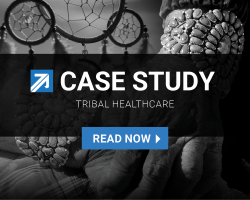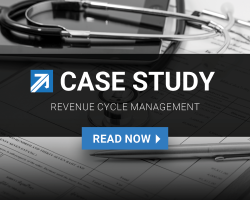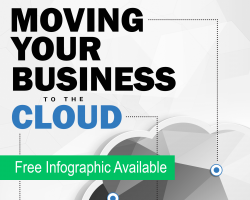CASE STUDY: Developing a Strategic and Operational Plan for a Tribal Health Client
By | April 19, 2022Client’s Challenge Our Tribal Health client was seeking guidance and assistance with mobile health and telehealth service offerings. In preparation for their implementation of these services, they secured John Lynch & Associates as their consulting firm to help develop a comprehensive strategic and operational plan with an overarching policy for their program. In addition,…
Read MoreCASE STUDY: Interim CIO
By | April 7, 2022Client’s Challenge Our client needed an Interim Chief Information Officer (CIO) to provide leadership and strategic direction while they searched for a permanent CIO. The hospital is in a rural area where finding Information Technology (IT) talent is often challenging. Our customer’s goal was to evaluate the current strengths and weaknesses of the IT…
Read MoreCASE STUDY: IT Assessment for a Large Behavioral Health Organization
By | March 8, 2022Client’s Challenge Provide a comprehensive Information Technology (IT) Assessment for a large behavioral health organization with over 40 facilities across Arizona. Include in the assessment an examination of the following: Current IT Staffing Model & Recommendations IT Support and Daily Operations Review Overview of Hardware and Software IT Purchasing Process, Controls & Accountability Our…
Read MoreCASE STUDY: Revenue Cycle Department Transformation
By | February 15, 2022Client’s Challenge Our client’s Revenue Cycle Department was currently undergoing a period of evaluation as to the efficacy and efficiency of its processes. They decided to seek outside assistance with specific knowledge of revenue cycle management and strong leadership skills to help identify, prioritize, and implement solutions. Our Solution Following an in-depth analysis of…
Read MoreCASE STUDY: Design & Build an IT Infrastructure for a New Acute Care Facility
By | February 1, 2022Client’s Challenge Design and build an IT infrastructure that supports a brand new full-service, 49 bed, general acute care facility in Southern Arizona. The infrastructure needed to support over 250 employees, 120 volunteers, and numerous contracted providers. Provide IT leadership and project management from groundbreaking through the hospital’s first few months of operation. Ensure that…
Read MoreTop 5 Myths About The Cloud [ Infographic Included ]
By | January 5, 2022Cloud computing is no longer considered a new technology today. However, there are still many inaccuracies and misconceptions that surround this technology. With clouds rapid rise and use this is understandable. Although you might still be skeptical there is no doubt that cloud computing is here to stay. The benefits of cloud computing for healthcare…
Read MoreMoving Technology to the Cloud During COVID-19
By | August 25, 2020More Businesses Than Ever Before are Moving to the Cloud The cloud is a worldwide, connected online environment that provides substantial advantages to individuals and companies alike. Cloud services are efficient and cost-effective. A large number of companies in the U.S. are starting to realize the benefits of moving their data to the cloud. As…
Read MoreHealthcare and Big Data: a Winning Combination
By | August 11, 2020Big data is all about large datasets. Modern datasets are so large and complex that you need special software to extract any information. The internet is a classic example of big data. In fact, the amount of information online today is so vast that it would be impossible for anyone to see it all within…
Read MoreNot All Solutions to Improve Healthcare are High-Tech
By Jordan Lynch | Help Desk Analyst | June 30, 2020As of 2018, the US spent about 17% of its Gross Domestic Product (GDP) on healthcare. In addition, the US spends, on average, two-and-a-half times more compared to a majority of other developed nations, while allocating almost 60% less on social services (https://stats.oecd.org). Not surprisingly, average life expectancy lags behind most European nations by more…
Read MoreHow to Transition From One EHR System to Another
By Katie Lynch, CAHIMS | Dustin Týr Miranda, CSSBB | Echo Miranda, NCP | June 23, 2020Switching to a new EHR? Transitioning from one system to another is a chance to reset your healthcare organizational goals. However, switching systems or simply trying to optimize the system you currently have can be a daunting project. Given the high rate of IT project failures, it is no wonder that so many healthcare organizations…
Read MoreThe Value of Consulting Tools
By Týr Dustin Miranda, CSSBB | Sr. Consultant | June 16, 2020I am writing this insight while sitting in the comfort of my own home. My setting is quiet and bright and composed of all of the things I need to work effectively. Where I am sitting has the creature comforts and open space that I use to help keep my mind focused and sharp. But…
Read More5 Project Management Techniques to Create a Successful Healthcare Operation
By Katie Lynch, CAHIMS | Chief Operating Officer | May 12, 2020The healthcare industry is in constant flux, with sweeping changes occurring on a regular basis. In fact, in addition to the current COVID-19 outbreak, a major challenge facing healthcare organizations in this climate of reform is managing costs while still delivering excellent patient care. To accomplish this, operations management must constantly keep up with demand…
Read More











